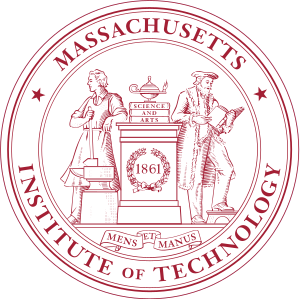Aeronautics and Astronautics |
Aerospace Computational Engineering |
Air Transportation Systems |
Air-Breathing Propulsion |
Aircraft Systems Engineering |
Archaeological Materials |
Architecture Studies |
Architecture: Building Technology |
Architecture: Design and Computation |
Architecture: History and Theory of Architecture |
Architecture: History and Theory of Art |
Atmospheric Chemistry |
Atmospheric Science |
Autonomous Systems |
Biochemistry |
Biological Engineering |
Biological Oceanography (jointly offered with WHOI) |
Biology |
Biomedical Engineering |
Biophysical Chemistry and Molecular Structure |
Building Technology |
Cell Biology |
Chemical Engineering |
Chemical Engineering Practice |
Chemical Oceanography (jointly offered with WHOI) |
City Planning |
Civil and Environmental Engineering |
Civil and Environmental Systems |
Civil Engineering |
Coastal Engineering |
Cognitive Science |
Communications and Networks |
Comparative Media Studies |
Computational and Systems Biology |
Computer Science |
Computer Science and Engineering |
Construction Engineering and Management |
Controls |
Developmental Biology |
Earth and Planetary Sciences |
Economics |
Electrical Engineer |
Electrical Engineering and Computer Science |
Engineering and Management |
Engineering Systems |
Engineering/Management—dual degree with Leaders for Global Operations Program |
Environmental Biology |
Environmental Chemistry |
Environmental Engineering |
Environmental Fluid Mechanics |
Genetics |
Geochemistry |
Geology |
Geophysics |
Geotechnical and Geoenvironmental Engineering |
Humans in Aerospace |
Hydrology |
Immunology |
Information Technology |
Linguistics |
Management |
Management of Technology |
Management Studies |
Manufacturing |
Marine Geology and Geophysics (jointly offered with WHOI) |
Materials and Structures |
Materials Science and Engineering |
Mathematics |
Mechanical Engineering |
Media Arts and Sciences |
Media Technology |
Microbiology |
Molecular Biology |
Naval Architecture and Marine Engineering |
Neurobiology |
Neuroscience |
Nuclear Science and Engineering |
Ocean Engineering |
Oceanographic Engineering (jointly with WHOI) |
Operations Research |
Philosophy |
Physical Oceanography (jointly offered with WHOI) |
Physics |
Planetary Sciences |
Political Science |
Real Estate Development |
Science Writing |
Space Propulsion |
Space Systems |
Structures and Materials |
Technology and Policy |
Toxicology |
Transportation |
Urban and Regional Planning |
Urban and Regional Studies |
Urban Studies and Planning |
Advanced Urbanism |
Aeronautics and Astronautics and Statistics |
Aeronautics, Astronautics, and Statistics |
Aerospace Engineering and Computational Science |
Aerospace, Energy, and the Environment |
Architecture |
Art, Culture, and Technology |
Artificial Intelligence and Decision Making |
Business Administration |
Business Analytics |
Chemical Engineering and Computation |
Chemistry |
Civil Engineering and Computation |
Climate Science |
Cognitive Science and Statistics |
Computation and Cognition |
Computational Earth, Atmospheric and Planetary Sciences |
Computational Earth, Science and Planetary Sciences |
Computational Materials Science and Engineering |
Computational Nuclear Science and Engineering |
Computational Science and Engineering |
Computer Science and Molecular Biology |
Computer Science, Economics, and Data Science |
Economics and Statistics |
Electrical Engineering |
Environmental Engineering and Computation |
Finance |
Health Sciences and Technology |
Health Sciences and Technology—Bioastronautics |
Health Sciences and Technology—Medical Engineering and Medical Physics |
History, Anthropology, and Science, Technology, and Society |
Management Research |
Mathematics and Computational Science |
Mathematics and Statistics |
Neuroscience and Statistics |
Nuclear Engineering and Computation |
Operations Research/Management—dual degree with Leaders for Global Operations Program |
Physics, Statistics, and Data Science |
Political Science and Statistics |
Polymers and Soft Matter |
Social and Engineering Systems |
Social and Engineering Systems and Statistics |
Supply Chain Management |
Data, Economics, and Development Policy |
Mechanical Engineering and Computation |
Mechanical Engineering and Statistics |
 3
3 
 The Academic Ranking of World Universities (ARWU) is recognized as the precursor of global university rankings and the most trustworthy one. ARWU presents the world's top 1000 research universities annually based on transparent methodology and objective third-party data.
The Academic Ranking of World Universities (ARWU) is recognized as the precursor of global university rankings and the most trustworthy one. ARWU presents the world's top 1000 research universities annually based on transparent methodology and objective third-party data.





